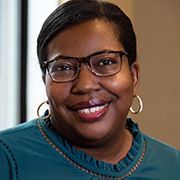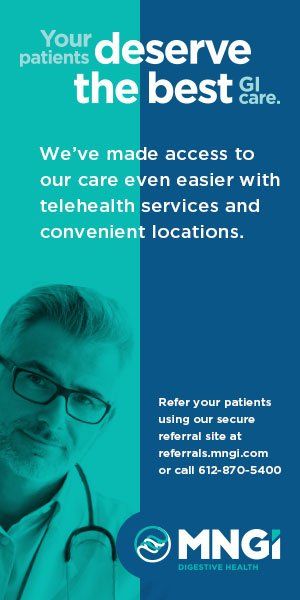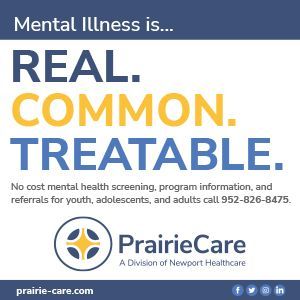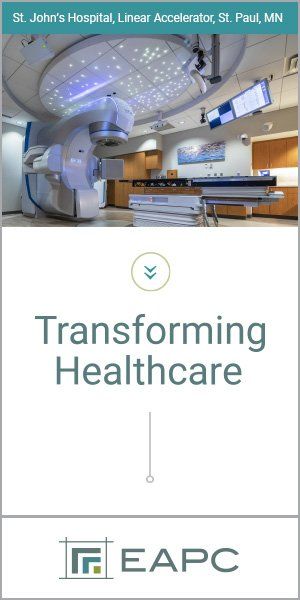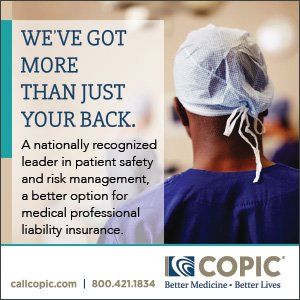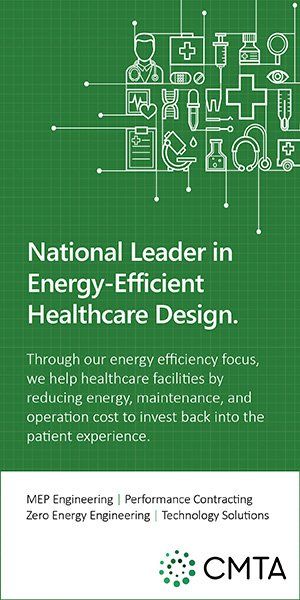Interview
Making Health Care More Accessible
Ruth Richardson, JD, president and CEO of Planned Parenthood North Central States
Please tell us about your duties as CEO of Planned Parenthood NCS.
Planned Parenthood North Central States (PPNCS) operates in Minnesota, South Dakota, North Dakota, Nebraska and Iowa. We operate 28 health centers and also provide health care through telehealth. We offer comprehensive, voluntary sex education to tens of thousands of people a year, and we fight for reproductive rights and health equity with fierce advocacy. As president and CEO of PPNCS, I have the privilege of leading our organization into the new era of our work. We have to work differently because of the onslaught of court cases and legislation impacting what we do. We are expanding abortion care in states where it is still legal, investing in resources and staff to make health care more equitable, providing culturally responsive sex education and energizing advocates across our states.
At the one-year anniversary of the Supreme Court reversal of Roe v. Wade, what aspects of this are the most important for physicians to be aware of?
Overturning Roe has resulted in devastating abortion bans across the country and created a manufactured state of confusion. People do not know what care they can legally access. The shifting legal sands make it hard for patients to keep up, and that creates a chilling effect to accessing health care as many patients are afraid. This new landscape is unfair—but in all honesty, it’s been unfair for quite some time for structurally marginalized communities. We know the Black maternal health crisis is preventable, and abortion bans only serve to create more inequities. We need to be working on all fronts to end this preventable maternal health crisis and make sure people can get the care they decide is best for their bodies and futures.
The recent legislative session enacted the “Reproductive Freedom Defense Act”. What can you tell us about this new law?
The overturning of Roe has resulted in other states passing laws that not only ban abortion in their own states but also reach across state lines, preventing people from traveling elsewhere to get the care they are not able to get at home. The Reproductive Freedom Defense Act protects doctors and patients who need access to the full range of reproductive health care options. The bill protects patients in Minnesota, coming to Minnesota from a state that bans abortions, and doctors who practice in Minnesota or outside of Minnesota. The bill makes it clear that abortion patients and doctors will be protected in Minnesota.
What are some of the biggest misperceptions people have about Planned Parenthood?
PPNCS plays a critical role in the health care system by providing the health care that people decide is best for them and their bodies. There is a narrative out there about who we are that seeks to divide people, but our patients and supporters know that we are here to provide health care and work to make health care more accessible.
Our wide range of reproductive and sexual health services includes annual exams, cervical and breast cancer screenings, contraception care, sexually transmitted infection (STI) testing and treatment, HIV testing, PrEP and PEP, immunizations, mental health services, pregnancy testing, emergency contraception, gender-affirming care including hormone management, and abortion information and options.
What are some of the most important things people should know about Planned Parenthood?
We’re doing everything we can to meet patient needs in this new landscape, and while we have innovative systems like abortion patient navigators, LGBTQ+ care coordinators and expanded telehealth services, it sometimes comes down to a question of resources. Until we live in a world where everyone can access health care in their own communities, we’ll need resources to help people travel to get the care they need.
During the last year, we’ve also seen a nearly 100 percent increase in patients traveling from outside of our region to get an abortion in Minnesota, Iowa or Nebraska—the states where PPNCS offers abortion care. While we continue to primarily serve patients from our region and communities, we’ve seen an increase in patients coming from states like Texas, Louisiana and Missouri. We are seeing more abortion patients, and we are seeing more patients choose a procedural abortion—primarily among patients that must drive long distances to their appointments.
People across the country need care and help. But people in our communities and neighborhoods need help too. This is not just about patients who live in states that have banned abortion. This is about all patients everywhere.
We’re faced with the stark reality that health care in this country is political.
What are some of the ways Planned Parenthood provides vital health care resources to underserved communities?
Planned Parenthood works across many areas to provide health care resources to underserved communities, from our education programs to ways we can financially support communities. We’ve seen that limiting access to any part of health care hurts the entire health care system, with marginalized communities the most. There has already been an increase in maternal mortality since Roe was overturned, and the trends are expected to worsen.
We recently doubled our existing telehealth reach in Minnesota from nearly 10,000 to 20,000 patients. We can provide birth control consultation and prescription, UTI screening and treatment, PEP consultation, STI care, PrEP follow-up, vasectomy consultation, screening and treatment for anxiety and depression, gender-affirming care consultation, tobacco cessation consultation, and access to medication abortion. Additionally, our telehealth services can be interpreted into more than 240 languages.
PPNCS also has a research division whose mission is to engage in innovative and collaborative research to improve access to equitable and quality sexual and reproductive health. PPNCS is committed to the production of knowledgeable and best practices informed by justice and compassion that affirm the human right to reproductive autonomy.
How do you interact with Planned Parenthood operations in other states?
Planned Parenthood has a complex organizational structure and PPNCS is a subsidiary organization or what’s called an affiliate. There are 49 affiliates across the United States operating more than 600 health centers and last year provided care for 2.4 million people. Planned Parenthood’s subsidiary organizations provide, promote and protect reproductive and sexual health through high quality care, education and advocacy. As a member of America’s most trusted reproductive health care provider, PPNCS is proud to support and operate 28 health centers across our five-state region (Iowa, Minnesota, Nebraska, North Dakota and South Dakota). Each year, we provide health care to nearly 100,000 people and health education to more than 50,000 people in our region. Our patient navigators work with other affiliates to make sure people can access the care they need. This has helped us coordinate patient care, as our patient services and providers can work together to make sure people can get the care they need.
What are the biggest challenges your organization faces?
Now that Roe has been overturned, the shifting legal landscape makes it hard for patients to keep up with what care they can and cannot access, and as a result, many are scared. Our providers are constantly monitoring and adapting to new laws. Even in states where abortion remains legal, we hear about laws like SB 8 out of Texas, and people are afraid they will get in trouble. It’s incredibly hard to make plans to help people access health care when laws are constantly changing.
As we reflect on the past year, we’re faced with the stark reality that health care in this country is political. Where you live and the color of your skin determines what kind of care you receive. Health disparities are policy choices, they are judicial choices, whereas health care belongs between a patient and their provider.
Since Roe was overturned, we’ve seen a 25 percent increase in abortions performed by Planned Parenthood in Minnesota. We’ve been able to expand access throughout the year, partly because of the Minnesota court decision that came out last summer and partly from flying more doctors into Nebraska to provide care.
Planned Parenthood is doing everything we can to help as many people as we can. The manufactured confusion is having a chilling effect across our states and our country. But if anyone has a question, Planned Parenthood is here to help.
How can physicians support your work?
We are seeing a tale-of-two states play out along Minnesota’s borders. While our neighbors and other states around the country decimate abortion access, reproductive rights, trans rights and gender-affirming health care, Minnesota has protected rights, expanded abortion access and invested in sexual and reproductive health care. And we know people are coming here for this care—to exercise their right to control their bodies and their health. We are proud to offer this life-affirming care in Minnesota.
Physicians can support our work by using their voices to help share the message that abortion is health care and everyone deserves access to the health care they decide is best for them. It’s going to take everyone working together to bring about an equitable health care system, but that future is possible. We’ll be here working on all levels to make it a reality. Physicians have been an increasing force at the legislature and critical to passing major legislation, such as the Protect Reproductive Options Act, a precursor to the Reproductive Freedom Defense Act.
What advice can you offer for dealing with people who are so vehemently opposed to your work?
No matter how each individual feels about abortion, the decision is best made by a patient and their doctor. One in four women will have an abortion. We know that abortion is health care, and we all love somebody who has had an abortion. Every situation is different, every pregnancy is different. Everyone deserves to make their own decision, and that’s why we’re here. For the people who decide to have an abortion, they deserve to access that care.
Ruth Richardson, JD, is -president and CEO of Planned Parenthood North Central States and a health equity champion, and a trailblazer. Before coming to PPNCS, she was the CEO of Wayside Recovery Center, a nonprofit health organization that provides mental health and substance abuse support. Ruth also serves in the Minnesota House of Representatives where she has passed more than 30 bipartisan reproductive justice bills since 2018. Her experience in health care, health equity, and executive leadership gives her an extremely valuable perspective in ensuring all patients access care no matter their race, income, sexual orientation, gender identity, or background.
MORE STORIES IN THIS ISSUE
cover story one
Moral Injury in Health Care: A growing concern
By Wendy Dean, MD
cover story two
Treating Rare Disease: New legislation brings hope
By Erica Barnes, MA, CCC-SLP , Sheldon Berkowitz, MD, FAAP and Kris Ann P. Schultz, MD





